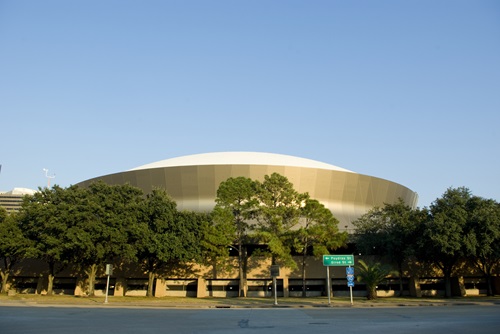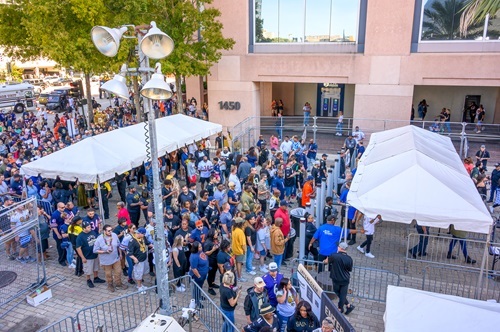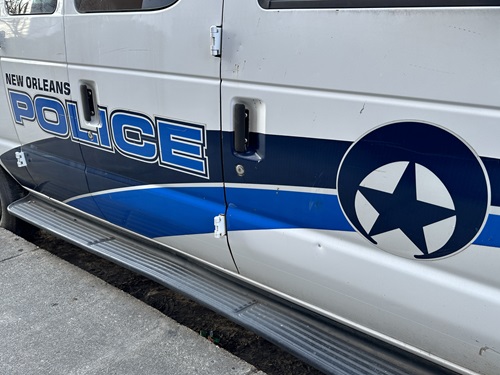
The postponement of the Sugar Bowl in New Orleans, done to ascertain that there were no additional threats following the deadly terrorist attack on Bourbon Street early on New Year's Day, was met with plenty of skepticism – as well as plenty of approval.
From those who believed discretion was the better part of valor, to those who said it was essential to show terrorists how strongly residents and fans believed in the city, there was plenty of talk.
ABC 7 noted that at a press conference, officials showed a united front.
"Public safety is paramount," Sugar Bowl CEO Jeff Hundley said at a media briefing alongside federal, state and local officials, including Louisiana Gov. Jeff Landry and New Orleans Mayor LaToya Cantrell. "All parties all agree that it's in the best interest of everybody and public safety that we postpone the game."
When the game was played on Thursday, it included a moment of silence to honor those who had been killed, as well as those who were injured, according to Yahoo! Sports. (ESPN was roundly criticized for not broadcasting the moment of silence.)

The article noted, “The circumstances surrounding the Sugar Bowl and perhaps a sense of community that developed among those in attendance in the face of tragedy added enthusiasm and vigor, in addition to a chant of "U-S-A!" to the performance of the national anthem by New Orleans native Samyra prior to kickoff. (The anthem also was not shown on the TV broadcast.)”
The game had more empty seats than normal; while some attributed it to heightened security that was slowing down entry, others noted that many spectators had traveled to see the game, and that the logistics of changing hotel and air reservations at the last minute were too difficult to manage.
Plus, the article noted, “with real-world events taking precedence, the game felt less significant to many.”
It’s certainly not the first time sports in the USA were disrupted by crime and other circumstances outside of organizers’ control. In 2017, for example, the Wright State University men's soccer team had been planning on having an exhibition match against the University of Virginia Saturday afternoon but plans quickly changed when violent protests erupted, driven by white supremacists.
Not even high school sports seemed to be safe. In 2023, a football team in Ohio saw its homecoming festivities cancelled when threats of violence unnerved administrators. In 2024, threats of violence circulating online, and what appeared to be an inappropriate social media post prompted a decision to cancel games and bar spectators from attending a Friday night football game in Charleston, South Carolina.
Following the September 11 attacks, a number of sports events nationwide were postponed. These included the following, according to Wikipedia:
NFL: Two games, on September 16 and 17 were postponed and rescheduled to the end of the regular season, with the playoffs beginning later. (Because of the schedule changes, the Super Bowl was played in February for the first time ever.)
MLB: All games were postponed all games through September 16. As with the NFL, the domino effect meant the World Series extended into November. (It was the third time in MLB history that games were cancelled due to war or national security reasons. Games were previously cancelled on D-Day, and the 1918 season was shortened due to World War I.)

MiLB: All Minor League Baseball championship series were cancelled. Teams that had led their respective series were awarded league championships, or teams which were scheduled to play in such series (such as the Midwest League, which utilizes half-season championships to position the championship series) were awarded co-championships.
MLS: The Major League Soccer final two weeks of the 2001 season were cancelled, with some teams only playing 26 or 27 matches instead of the planned 28. The playoffs, whose spots were already decided, were played as scheduled, beginning on September 20 and ending with the MLS Cup on October 21.
The remaining three matches of the 2001 Women's U.S. Cup, featuring the United States women's national soccer team, were cancelled.
NCAA Division I college football games originally scheduled to be played on September 13 and 15, 2001 were called off.
USA Cycling cancelled the BMC Software Tour of Houston, a key event in that year's Pro Cycling Tour that had been scheduled for September 16.
The Félix Trinidad vs. Bernard Hopkins world Middleweight championship boxing fight, which was to take place on September 15 at Madison Square Garden in New York, was postponed until September 29. A wrestling show that was to be held at the Garden around the same time was similarly cancelled.
Other events were delayed, including the UEFA Champions League and UEFA Cup matches. World Wrestling Entertainment, then named the World Wrestling Federation, had a live taping scheduled for the upcoming episode of SmackDown! on September 11, 2001; however, this was delayed until September 13, 2001. Worth noting: The live episode of SmackDown was the first large public assembly since the attacks.
NASCAR delayed the 2001 New Hampshire 300, moving the race (and the entire weekend) from September 16 to November 23, 2001. Several cars had American flag themes.
The 9/11 Memorial & Museum in New York hosted a special exhibit, “Comeback Season: Sports After 9/11,” which examined the way sports brought cities back together in the aftermath of the terrorist attacks. A promo for the exhibit noted:

“Sports have long claimed a central position in American life. In the aftermath of the 9/11 terrorist attacks, as they had during previous moments of crisis, sports helped to shape a national response to events far beyond the playing field.
Almost immediately, there were questions of propriety. Should games go on as planned? When would it be acceptable to resume competition? Sports figures spoke of their unwillingness to move too quickly, their desire to provide solace to the country, and the responsibility to honor the victims. They would go back to the games, they said, when it would help.
In the months that followed, sports set an emotional cadence for a grieving nation. Ballparks, racetracks, and arenas offered fans a place to come together and cheer. The rituals of sport were extended to commemorate those killed on 9/11 and honor those who protect us. In stadiums around the country, millions found a path forward, combining reverence for the fallen with devotion to the games.
This was the comeback season, reminding a nation that what we have in common is more powerful than what divides us.”

